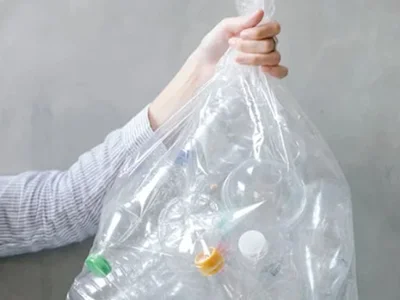Reclaim Waste Fundamentals Explained
Reclaim Waste Fundamentals Explained
Blog Article
Some Known Questions About Reclaim Waste.
Table of ContentsThe Facts About Reclaim Waste RevealedWhat Does Reclaim Waste Do?The 8-Minute Rule for Reclaim WasteLittle Known Questions About Reclaim Waste.Not known Incorrect Statements About Reclaim Waste
Discover the types, events, and types of liquid waste. Residential sewage waste describes the waste and products from a household septic storage tank. This sort of waste is developed by humans in residences, institutions, and other buildings. This only includes septic tanks that have a drain area. The appropriate administration and disposal of domestic sewer waste require fluid waste to be moved to a sewage therapy plant where the proper techniques and equipment are related to detoxify and take care of waste.
Business waste frequently consists of possible hazards, such as flammable products or a mixture of liquid and solid waste items, and calls for a more sophisticated and thorough disposal procedure. The disposal of commercial waste usually entails the purification of waste before transportation to guarantee risk-free and correct disposal. Industrial waste is created from byproducts and drainage of commercial procedures and manufacturing.
This sort of waste can not use the same sewage management transportation or processes as septic or industrial liquids. The hazardous waste administration procedure needs the examination and screening of fluid waste prior to it undertakes the disposal procedure (liquid waste disposal). Overflow waste is the liquid waste that originates from runoff and excess stormwater in highly booming areas or cities
Overflow waste can cause contamination and flooding if not handled effectively. Making sure appropriate waste management can protect against catastrophes and reduce ecological harm.
An Unbiased View of Reclaim Waste
Call PROS Solutions today to learn more about our waste administration and disposal services and the appropriate means to care for the liquid waste you generate.
(http://www.place123.net/place/reclaim-waste-laverton-north-vic-australia)This supposed 'wastewater' is not only an essential resource yet, after treatment, will be launched to our land, waterways or the ocean. Used water from bathrooms, showers, baths, kitchen sinks, washings and commercial processes is understood as wastewater.

water made use of to cool equipment or tidy plant and devices). Stormwater, a kind of wastewater, is runoff that streams from farming and metropolitan locations such as roofs, parks, gardens, roadways, courses and rain gutters right into stormwater drains pipes, after rain. Stormwater streams untreated directly to regional creeks or rivers, at some point reaching the ocean.
Examine This Report on Reclaim Waste
In Queensland, a lot of wastewater is treated at sewer treatment plants. Wastewater is moved from residential official statement or commercial websites through a system of sewers and pump terminals, called sewerage reticulation, to a sewage therapy plant. City governments build, maintain and run most sewer treatment plants. Operators are accredited under the Environmental Security Act 1994 to release cured wastewater at an acceptable ecological criterion right into waterways.
The Division of Natural Resources advises city governments concerning managing, operating and maintaining sewerage systems and therapy plants. In unsewered locations, city governments might call for owners to set up private or family sewage therapy systems to deal with domestic wastewater from toilets, kitchens, bathrooms and washings. The Department of Natural Resources authorizes the usage of home systems when they are proven to be reliable.
Most stormwater obtains no treatment. In some brand-new class, treatment of some stormwater to get rid of trash, sand and crushed rock has actually begun making use of gross contaminant traps. Wastewater therapy occurs in 4 stages: Gets rid of solid issue. Larger solids, such as plastics and various other objects mistakenly discharged to sewage systems, are eliminated when wastewater is travelled through displays.
Makes use of little living organisms understands as micro-organisms to damage down and get rid of remaining dissolved wastes and fine bits. Micro-organisms and wastes are included in the sludge.
Getting The Reclaim Waste To Work
Nutrient removal is not offered at all sewage therapy plants since it needs costly specialized devices. Clear liquid effluent generated after therapy may still consist of disease-causing micro-organisms - liquid waste removal.

This typically suggests wastewater has actually to be treated or impurities gotten rid of prior to it can be discharged to rivers. A lot of wastewater streams right into the sewage system. Under the Act, neighborhood governments carry out approvals and licences for environmentally pertinent activities (Periods) involving wastewater releases that might have a regional impact. The department provides authorizations and licences to Periods including wastewater launches that might have a local or statewide influence.
Not known Facts About Reclaim Waste
Or else, samples are considered laboratory evaluation. Often several examinations are required to develop the levels of each of the different toxins such as oils, heavy steels and chemicals in water. Tracking offers accurate details regarding water top quality and can verify that licence problems are being met. The information gotten with surveillance offers the basis for making water top quality decisions.
Report this page